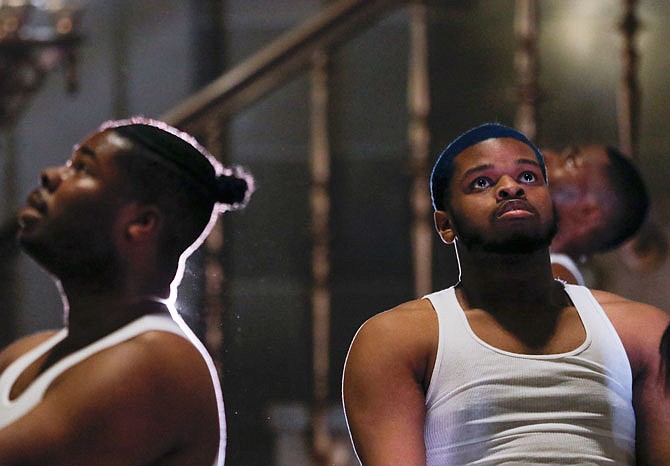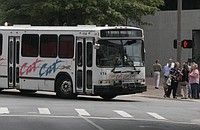The Missouri state Capitol Rotunda was filled with the echoes of the Rev. Dr. Martin Luther King's words in a chorus of voices as people from around the state gathered Wednesday night to celebrate the civil rights leader.
It was a night to recognize and celebrate the African American community of Missouri and of the nation - the struggles of the past, the realities of the present and the hopes of the future - all focused around one man who symbolized a movement.
The Dr. Martin Luther King Jr. Celebration, hosted by the Missouri Legislative Black Caucus and the NAACP Missouri State Conference, brought together elected officials and community members to recognize King on his birthday, ahead of the celebration of Martin Luther King Jr. Day on Monday.
Missouri State Supreme Court Chief Justice George Draper III focused on King's humanity during his message to the crowd.
"He was a hero, but he was a man. He wasn't a saint, he was a human being," Draper said. "He may not have been a saint, but he was a hero. He was a man prepared for history when it came to his door."
Missouri Gov. Mike Parson praised King's leadership.
"There's one thing I want to say about true leaders - and Martin Luther King would be one of those people - it's never about being the very best," Parson said. "It's always about making the people around you better. I can't think of any other way to describe what he did for other people - the sacrifices he made and was willing to make."
Story continues below photo gallery
The keynote speech of the evening was given by the mayor of Kansas City, Quinton Lucas, who began his speech by recognizing the Missouri Legislative Black Caucus.
"You all for decades have worked to make sure that our voices are heard and recognized in Jefferson City," Lucas said. "I know your work is not easy. Jefferson City, respectively, is not easy. I want you all to know that we noticed what you do."
Quoting a speech by King, given the day before his assassination, he continued: "The world is all messed up. The nation is sick. Trouble is in the land. Confusion all around. But I know, somehow, that only when it is dark enough, can you see the stars."
Lucas used King's words to share his own message - that continued struggles cannot be pushed aside despite progress that has been made since the 1950s and '60s.
"We understand, my brothers and sisters, that freedom means economic dignity for the hardworking black women in our country whose inflation-adjusted earnings have actually fallen in recent years. I say again - 'have fallen,'" Lucas said. "As we talk about progress, we still have a country where a black woman of the exact same credentials, the same background, the same education, makes 61 cents to the dollar of her white, male counterpart.
"Freedom means that our young brothers won't be suspended from schools at a disproportionate rate, convicted at a higher rate, and with longer sentences than many of our white counterparts. Freedom means that we all live life with the same rules, the same chances, the same forgiveness."
Parson called for the audience to consider what they are doing to improve the future.
"Regardless what the color of your skin is, it should be about are we trying to make the next generation better," Parson said. "All of us should have that calling for ourselves to say 'What are we doing?'"
Story continues below
Rep. Steven Roberts II, the chairman of the Missouri Legislative Black Caucus, reminded the audience that music also played an important role in the civil rights movement and to King.
"As they marched and protested, the voices of thousands of men and women rang out - not with words of anger, but with songs," Roberts said. "Music was a key piece of the civil rights movement because melodies and words provided emotion and more importantly hope. Hope for peace, hope for change and hope for a better tomorrow."
The power of music was evident as Sabria Hendricks, of Joshua House Church, sang out the first stanza of "Lift Every Voice and Sing," commonly called the black national anthem. As her voice echoed around the rotunda, the crowd joined her in quiet harmony.
"Sing a song full of faith that the dark past has taught us,
Sing a song full of hope that the present has brought us;
Facing the rising sun of our new day begun,
Let us march on 'till victory won."


